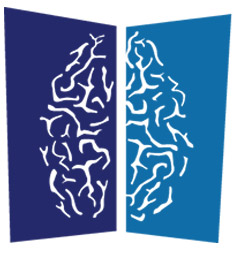The brain is one of the body’s biggest organs. It weighs three pounds, has 100 billion cells and is responsible for almost all human behavior.
And while the brain is only part of what neurosurgeons engage and work with (they also work with the spine), dealing with this most notoriously complex organ of the body is the first association that comes to mind.
Every year, the American Association of Neurological Surgeons (AANS) observes Neurosurgery Awareness during the month of August. In the past, Neurosurgery Awareness Month has focused on causes and prevention of traumatic brain injury (TBI), back pain, injury prevention and other neurological safety topics.
Currently, AANS Neurosurgery Awareness Month is aimed at coping with traumatic brain injury. Throughout August, the AANS will disseminate materials that look at related stories and experiences, forming a broader picture of the issues.
To celebrate this month, we aspire to shed a light on the field of neurosurgery, the profession of the talented and dedicated neurosurgeons at Advanced Neurosurgery Associates (ANA).
What Is a Neurosurgeon?
A neurosurgeon is a medical specialist who treats diseases and conditions affecting the nervous system, which includes the brain, the spine and spinal cord, and the peripheral nerves. Neurosurgeons provide non-operative and surgical treatment, depending on the nature of the injury or illness, to patients of all ages. At ANA, our experts deal extensively with both the pediatric and adult populations.
While a neurosurgeon’s primary responsibility entails performing surgery to resolve issues regarding the nervous system, the role also requires assessing and diagnosing patients. This is complicated by the fact that many of them are admitted to a hospital with unpredictable emergency situations, which means a neurosurgeon has no opportunity for any pre-scheduling or preparation.
While elective surgery for various conditions is an aspect of the profession, unexpected emergency surgery (say for an aneurysm) is also part of the job. And in addition to the daily tasks, these unscheduled emergencies compromise a substantial portion of neurosurgery.
Today, neurosurgery represents one of the most successful and prestigious specialties. It continues to lead the way in research, education and advances in surgical technologies, which serve all areas of medicine.
Notably, however, the field of neurosurgery is still rare for women. While ANA is privileged to have on staff Dr. Allison Rathmann, who has been mentored by Dr. Arno Fried, the founder of ANA, the field is still underrepresented by women. Less than 10 percent of neurosurgery residents are women, even though around half of all medical residents are women. Read more about Dr. Rathmann as a woman in her field.
Compassion and Communication
While dealing with both patients and their families in what can be an incredibly emotional and trying field, a neurosurgeon must bring to bear skills in both compassion and communication. In addition, neurosurgery requires extensive teamwork (and thus communication skills) with other medical professionals. Both of these aspects are a hallmark and an emphasis of ANA.
In addition to the team of experts relied upon within treatment, a neurosurgeon must also communicate with trauma doctors in the emergency room as well as neurologists and oncologists. Communication may also extend to physical therapists and patients’ family doctors.
Neurosurgeons are also responsible for staying updated on a constantly changing medical field, which includes such aspects as research and clinical trials. Whether through medical conferences or other networking, this requires collaboration with peers, specifically other doctors and scientists.
Education and Training
Neurosurgeons have one of the longest training periods of any medical specialty. The years of training are necessary because of the complexity of the nervous system.
The advanced training also enables neurosurgeons to use some of the most sophisticated techniques in medicine. Few medical specialties come close to neurosurgery in terms of technological advances. Neurosurgeons use three-dimensional brain imaging, incision-free stereotactic neurosurgery, operating microscopes and other cutting-edge techniques to treat patients.
The education and training to become a neurosurgeon include the completion of:
• Four years of pre-medical education at a college or university
• Four years of medical school resulting in an MD or DO degree
• One-year internship in general surgery
• Five to seven years in a neurosurgery residency program
• A potential fellowship after residency to specialize in a particular area
• Continuing education — annual meetings, conferences, scientific journals, research — to keep up with advances made in the complex field of neurosurgery.
About Advanced Neurosurgery Associates (ANA)
Advanced Neurosurgery Associates (ANA) provides world-class care for a comprehensive range of neurological conditions for adults, children, their caregivers and families.
ANA combines compassion with the latest research and technology in neurological medicine to provide the most effective, state-of-the-art treatment available. Renowned locally, nationally and globally, ANA provides an unparalleled level of expertise in the field of adult and pediatric neurosurgery.

ANA is a team of expert neurosurgeons and medical professionals, who combine their decades of knowledge to provide information, events, and articles on a range of neurological conditions.

